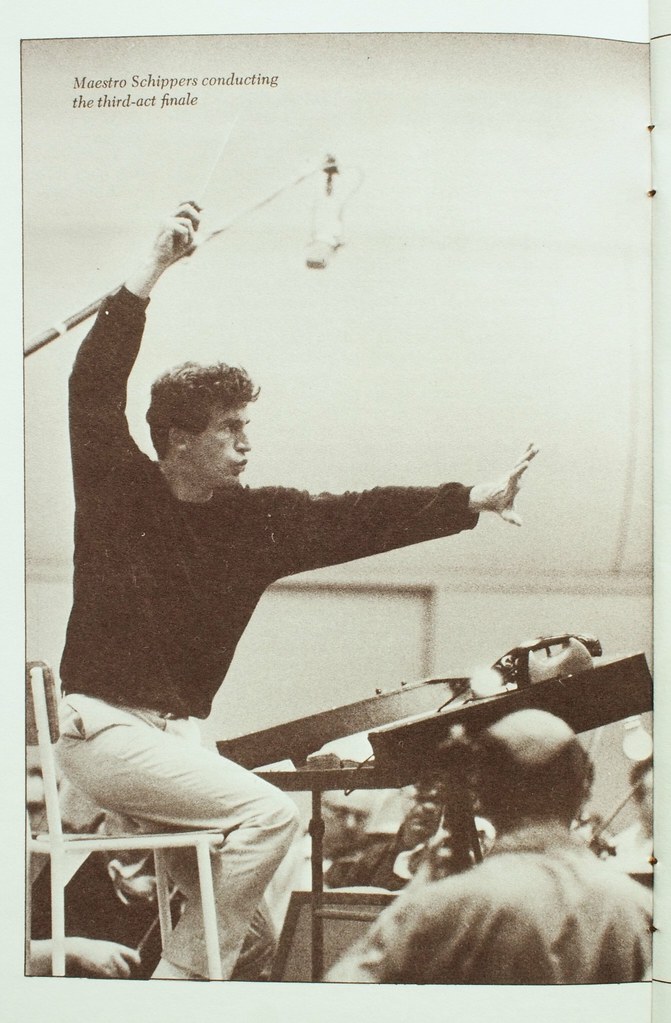
I happened to hear a recording the other day of one of my teachers, Thomas Schippers, leading the New York Philharmonic, and it brought back a flood of memories.
I focused on conducting very early in my musical career, and my sights were firmly set when I entered the College-Conservatory of Music of the University of Cincinnati. One of the reasons that I chose CCM was its proximity to a great orchestra and a great conductor. I was able to hear the Cincinnati Symphony on a weekly basis and struck up an acquaintance with then music director Thomas Schippers quite early in my freshman year. While he didn’t teach, per se, the Conservatory enticed him into leading the graduate seminar in conducting, and I weaseled my way into that class with his blessing (and you can imagine the disdain of the academicians). I attended as many rehearsals as I could, and eventually gained his attention sufficiently to enjoy a few one-on-one discussions. I remember one Sunday morning lesson at his home where I enjoyed coffee with Tommy, Sam Barber, and Gian Carlo Menotti! I often wish I could re-live that hour now that I know what the questions are!
Upon my graduation from CCM, Tommy secured an appointment for me at L’Academia Santa Cecilia in Rome to study with renowned conducting pedagogue Franco Ferrara. Tommy had recently been named music director of the orchestra there, but he developed a mysterious illness and began cancelling engagements due to his health. He ultimately passed away on December 16,1977. His ashes are interred at the Duomo in Spoleto Italy, home of the Festival that he helped to found with Menotti and Barber.
In looking back on the scenario, I sometimes wonder if Schippers wasn’t one of the first cases of AIDS. The doctors never really definitively diagnosed his problems, chalking it up to some rare form of lung cancer.
At any rate, we lost an amazing musician and conductor that day. In fact, I think, had he lived, Thomas Schippers would be the pre-eminent American conductor today (he would be in his 80’s now). He had an extraordinarily fluid technique, an innate musicianship, and a keen ear, and he empowered the orchestra to play far above its means. One could watch their development on a weekly basis, and the CSO was often referred to at the time as the most European of all American orchestras.
I am so fortunate to have spent some time with him!

